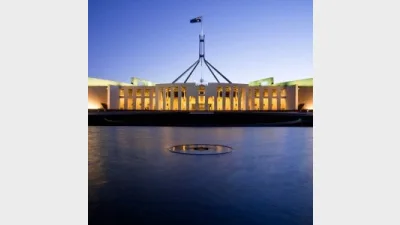Treasury ‘confident’ in trustees’ ability to avoid providing financial advice



The Treasury has released its final report into the Retirement Income Covenant, stating it is confident superannuation trustees can meet the requirement without providing financial advice.
In its final report into the Corporate Collective Investment Vehicle (CCIV) Framework and Other Measures Bill, the Senate standing committee on economics concluded that it was confident in superannuation trustee’s ability to fulfil the requirements.
Committee chair, Senator Paul Scarr, said: “Regarding issues raised by submitters when formulating and giving effect to their strategy, the committee is confident that trustees can fulfil the requirements of the covenant and create effective retirement income strategies without providing financial advice or breaching anti-hawking laws.
“Further, the committee understands that Treasury’s review of the quality of financial advice consultation process will explore the issue of whether financial advice concepts could be simplified.”
“The committee recommends that the bill be passed as soon as practicable in order to provide certainty to stakeholders working towards the 1 July, 2022 deadline for implementation of the CCIV and the retirement income covenant.”
The comments followed submissions by organisations such as the Australian Institute of Superannuation Trustees (AIST) who noted practical concerns related to the overlap between what was expected from superannuation trustees regarding guidance and what was considered advice.
The Financial Planning Association of Australia (FPA) also noted superannuation trustees had access to personal information about beneficiaries which created a “very fine line” between the provision of factual information and the provision of advice.
“The FPA submitted that superannuation trustees have access to personal information about beneficiaries, which creates a very fine line between the provision of factual information and the provision of general or personal advice as the beneficiary may assume the trustee has considered the individual’s circumstances when ‘assisting’ them with their retirement income needs.”
The report also confirmed trustees of self-managed superannuation funds (SMSFs) would be excluded from the covenant as they were “very different” to those funds regulated by the Australian Prudential Regulation Authority (APRA).
Adam Hawkins, assistant secretary, tax and transfers branch at Treasury, said: “An APRA-regulated fund has a very large membership, potentially millions of members, and will need to gather information in order to formulate their strategy; whereas a self-managed superannuation fund will intimately know their members, so the need to gather information and then develop a strategy on types of services or products that might be appropriate to them isn't as involved as it would be for an APRA-regulated fund”.
Recommended for you
A strong demand for core fixed income solutions has seen the Betashares Australian Composite Bond ETF surpass $1 billion in funds under management, driven by both advisers and investors.
As the end of the year approaches, two listed advice licensees have seen significant year-on-year improvement in their share price with only one firm reporting a loss since the start of 2025.
Having departed Magellan after more than 18 years, its former head of investment Gerald Stack has been appointed as chief executive of MFF Group.
With scalability becoming increasingly important for advice firms, a specialist consultant says organisational structure and strategic planning can be the biggest hurdles for those chasing growth.











